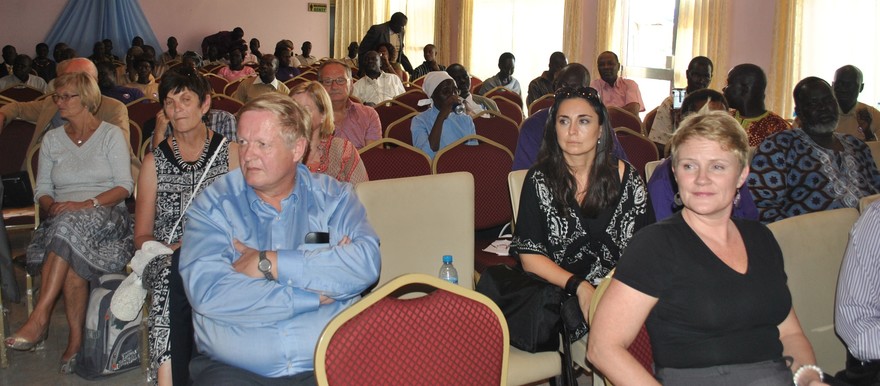Norwegian Church Aid celebrated with current and former staff last Saturday its 40th anniversary of work in South Sudan. The group first came to the region after the 1972 Addis Ababa Accord, which was mediated by the World Council of Churches.
A number of dignitaries attended the event including retired Catholic Bishop of Torit Paride Taban, Anne-Marie N. Helland, the secretary-general of the Norwegian organization, and the head of the UN peacekeeping mission in South Sudan, Hilde Johnson.
Johnson, a former NCA board member, said that “Norwegian Church Aid’s hallmark has been etched in the country’s history and journey.”
The organization began its work mostly in Eastern Equatoria and later expanded into Warrap and Western Bahr el Ghazal states.
Between 1975 and 1985 NCA operated a “huge integrated development program primarily all over Eastern Equatoria Province from its base Hilieu near to Torit,” the organization said in a bulletin distributed at the event on Saturday.
According to Johnson, NCA supported over 100 cooperative societies in the 1970s as part of a livelihoods program.
At its height between 1980 and 1984, NCA’s program in Hillieu involved 1500-2500 local employees and 60-80 expats, many with accompanying families. Across Equatoria there were more than 200 Norwegians, according to the bulletin.
The organization continued its work throughout the second civil war, maintaining operations on both sides of the conflict.
Johnson, in her address to the gathering said, “You have been on this journey together with the South Sudanese through hard times when the horizons appeared uncertain, the future bleak, and you have been there on more jubilant occasions, when the sun was rising.”
Bishop Paride Taban, for his part, commended NCA for its work especially during the wartime. But he called for more support to education. “Most children, who have grown in the war environment, are now facing many problems in the job market. So we need organizations like NCA to put more resources in education to reduce this gap,” he stressed.
“Capability and capacity-building are the most worrying issues facing the new nation today,” he said.
Photo by Radio Tamazuj: Norwegians with former and current South Sudanese colleagues at an event commemorating their record of work and achievements in South Sudan, 10 November 2012.




